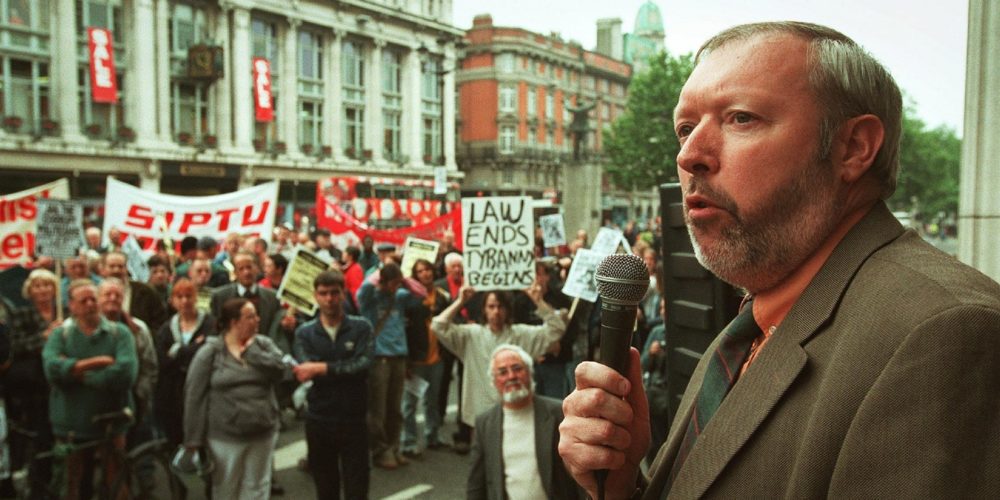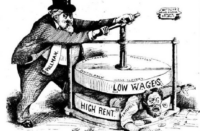■ Mick O’Reilly, From Lucifer to Lazarus: A Life on the Left (Dublin: Lilliput Press, 2019)
Mick O’Reilly’s recently launched book is a must-read for all young activists, as it records how many of the gains achieved and then taken for granted were won through hard struggle and tough battles, fought by brave and willing members of the working class.
It records many battles over the last fifty-odd years and describes the strategies, methods and planning that are now in danger of being forgotten as a result of “social partnership,” bad or treacherous leadership, and the facilitating of anti-worker legislation, such as the Industrial Relations Act (1990), by the trade union movement.
This book is a mine of information, particularly for young activists who have little experience of the struggles of the past and the methods used. There is advice for shop stewards on how to negotiate effectively and on how to be an effective political activist, and for union members and leaders on the importance of self-criticism, on why we must remain true to our politics, and the importance of education. (There is even advice on a successful marriage.)
Most if not all of the disputes that Mick recounts would be illegal today; indeed many of the actions he and his comrades were involved in were illegal at the time, but this did not stop them from fighting for what was right.
He deals with a plethora of disputes and struggles in a very efficient manner, getting to the point quickly—the battle, strategy, methods, and result—in an honest, witty and page-turning manner, never boring or repetitive.
It is an honest book, often self-critical, and gives a great insight into the trade union movement and life as part of the working class of Dublin, Belfast, and beyond. It is an easy read, moving from battle to battle, on to life as a communist, then from family stories to witty recollections, at a pace as fast as he was willing to down tools, hit the bricks, and place a picket.
He doesn’t dwell on his sacking from the ATGWU; he deals with it towards the end of the book, but it doesn’t dominate it, as there is a lot more to Mick’s life than that particular episode.
Mick is a lifelong communist, and though he left the party back in 1975 (as he disagreed with the CPI’s backing of the Soviet intervention in Czechoslovakia in 1968 and went more Euro-communist over time) he has remained a friend and supporter of the party to this day. There are a lot of interesting anecdotes from his time as a CPI member, which comrades will enjoy. He never hid or hides his politics, something that has cost him dearly over the years.
A valuable training manual for the next generation of activists.






